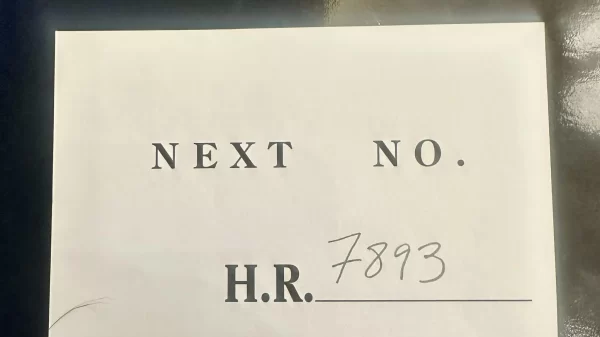Thursday, U.S. Attorney General Jeff Sessions announced that the U.S. Department of Justice will not defend against a new lawsuit challenging the constitutionality of individual mandate provision in the Patient Protection and Affordable Care Act of 2010 filed in February by Alabama, Texas, and 18 other states.
The National Federation of Independent Businesses filed a lawsuit and were joined by Alabama, Texas, and over 20 other states challenging the constitutionality of Obamacare, but most of the controversial healthcare law remained in place after the Supreme Court ruled largely in favor of the law.
That 2012 decision, written by Chief Justice John Roberts, ruled that Congress, with the power to tax, could indeed force individual citizens to purchase health care insurance whether they wanted it.
In late 2017, Congress passed the Republican Tax Cuts and Jobs Act that among many other provisions made the individual mandate penalty effectively $0 starting in 2019.
In February, Alabama joined Texas, Arkansas, Wisconsin, the Governor of Maine, South Carolina, Nebraska, Florida, Arizona, Georgia, Indiana, Kansas, Louisiana, the Governor of Mississippi, West Virginia, North Dakota, Utah, Missouri, and Tennessee and filed a lawsuit arguing that without the individual mandate Obamacare is not a tax and thus not constitutional under the Roberts ruling in NFIB versus Sebelius.
On April 26, Alabama Attorney General Steve Marshall announced that Alabama is one of 20 states that filed a motion in federal court seeking a preliminary injunction against the Patient Protection and Affordable Care Act.
“The so-called Affordable Care Act has been anything but affordable for both consumers and for states,” Marshall said. “In 2012, Obamacare barely survived a legal challenge when the U.S. Supreme Court determined that the law’s individual mandate was constitutional only because it qualified as a tax penalty for those who chose not to purchase health insurance. However, five years later Congress passed the Tax Cuts and Jobs Act eliminating Obamacare’s tax penalty. Accordingly, Obamacare’s costly individual mandate is no longer legally justifiable.
“This week, I joined a multi-state motion filed in the U.S. District Court for the Northern District of Texas seeking to halt Obamacare because of the tremendous cost of its individual mandate to individuals and to states.”
Marshall said that the passage of Obamacare transferred a majority of states’ regulatory authority over health insurance to the federal government.
Included in the 20-state motion is a declaration from Alabama Department of Insurance Commissioner Jim Ridling citing Obamacare’s negative impact on health insurance cost and choice to Alabama consumers. In the 38 states, including Alabama, where the federal government administers health exchanges, health insurance premiums have risen an average of over 100 percent from 2013 to 2017.
When the states or anyone else sues the federal government normally it is normally the duty of the U.S. Department of Justice to defend the government; however, then U.S. Attorney General Eric Holder refused to allow DOJ to defend the Defend of Marriage Act (DOMA) setting a precedent that was not lost on current Attorney General Jeff Sessions.
On Thursday, Sessions sent a letter to U.S. Speaker of the House Paul Ryan, R-Wisconsin, indicating that the Department of Justice will not defend the constitutionality of the Affordable Care Act mandate for individuals to maintain essential health insurance coverage, in the lawsuit brought by Alabama, Texas, et al.
Sessions said he agreed with the plaintiffs because there is no longer a tax that brings in federal revenue, he would not uphold the individual mandate.
“Weighing those considerations here, I have concluded that this is a rare case where the proper course is to forgo defense of Section 5000 (a),” Sessions said of the ACA’s requirement for individuals to have essential health coverage.
Sessions however also said that he agrees with the Department of Justice’s opinion at the time of the 2012 case, that if the mandate is unconstitutional, it is separate from the ACA’s other provisions, except those guaranteeing issuance of coverage in the individual and group market.
“I concur in the Department’s prior determination,” Sessions said. “Outside of these provisions of the ACA, the Department will continue to argue that Section 5000A(a) is severable from the remaining provisions of the ACA.”
Republicans have repeatedly promised voters that they would repeal the controversial ACA; but efforts to formally repeal the unpopular legislation failed last year in the U.S. Senate where Republicans could not get the fifty votes needed.
(Original reporting by the Atlantic, Healthcare Finance News, and Fox News contributed to this report.)






















































